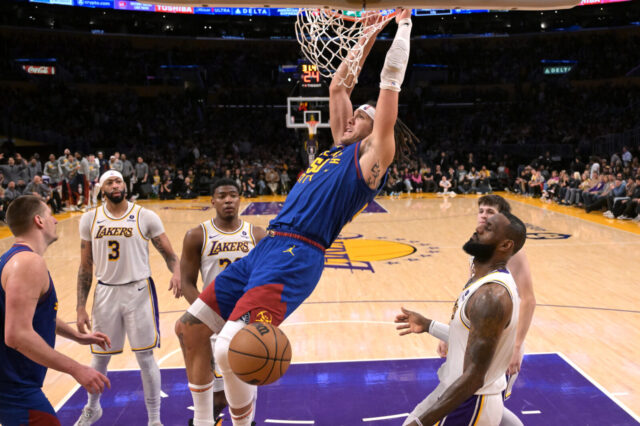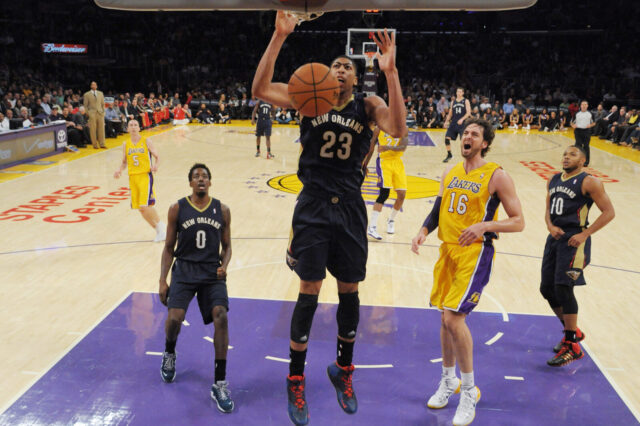George Karl recently authored a book, titled “Furious George.” The book doesn’t come out until January but some of the quotes were shared by Frank Isola of the New York Daily News in in an article on Tuesday:
George Karl is highly critical of Carmelo in a new book, saying that when Denver Nuggets traded Anthony to the Knicks in 2011 it was like "popping a blister."
"Carmelo was a true conundrum for me in the six years I had him," Karl wrote. "He was the best offensive player I ever coached. He was also a user of people, addicted to the spotlight and very unhappy when he had to share it."
Karl also dished on the lack of a father figure in the lives of Kenyon Martin and Carmelo Anthony:
This content is no longer available.
Isola shares several other quotes in the article as well, but as it turns out, some of his former players weren’t very happy with Karl’s exposé.
Kenyon Martin took to Twitter this afternoon to express his disdain for the former head coach. Karl always had a reputation for not getting along with star players and difficult personalities in the locker room, and Martin didn’t seem to appreciate Karl either. Neither did Reggie Evans or J.R. Smith:
Wilson Chandler also shared his thoughts:
Reggie Evans’s full quote:
Many of these comments are in poor taste from Karl and the players certainly have a right to express their displeasure with his negative commentary. With Anthony and Smith finding nice playing situations and discovering their respective niches, the timing of the exposé is very strange.
Karl’s firing will forever be questioned by fans who appreciated his consistent style of play and ability to generate wins with every cast of characters while in Denver. His passion and uptempo style made him very likable in this regard, but many of the players didn’t appreciate his personality. While fans rarely see the issues behind the scenes that Karl created with his star players, it certainly doesn’t sound like the situation was a healthy one throughout Karl’s tenure. Hopefully, fans can appreciate the success that Karl had in Denver while also appreciating the decision to let him go.


